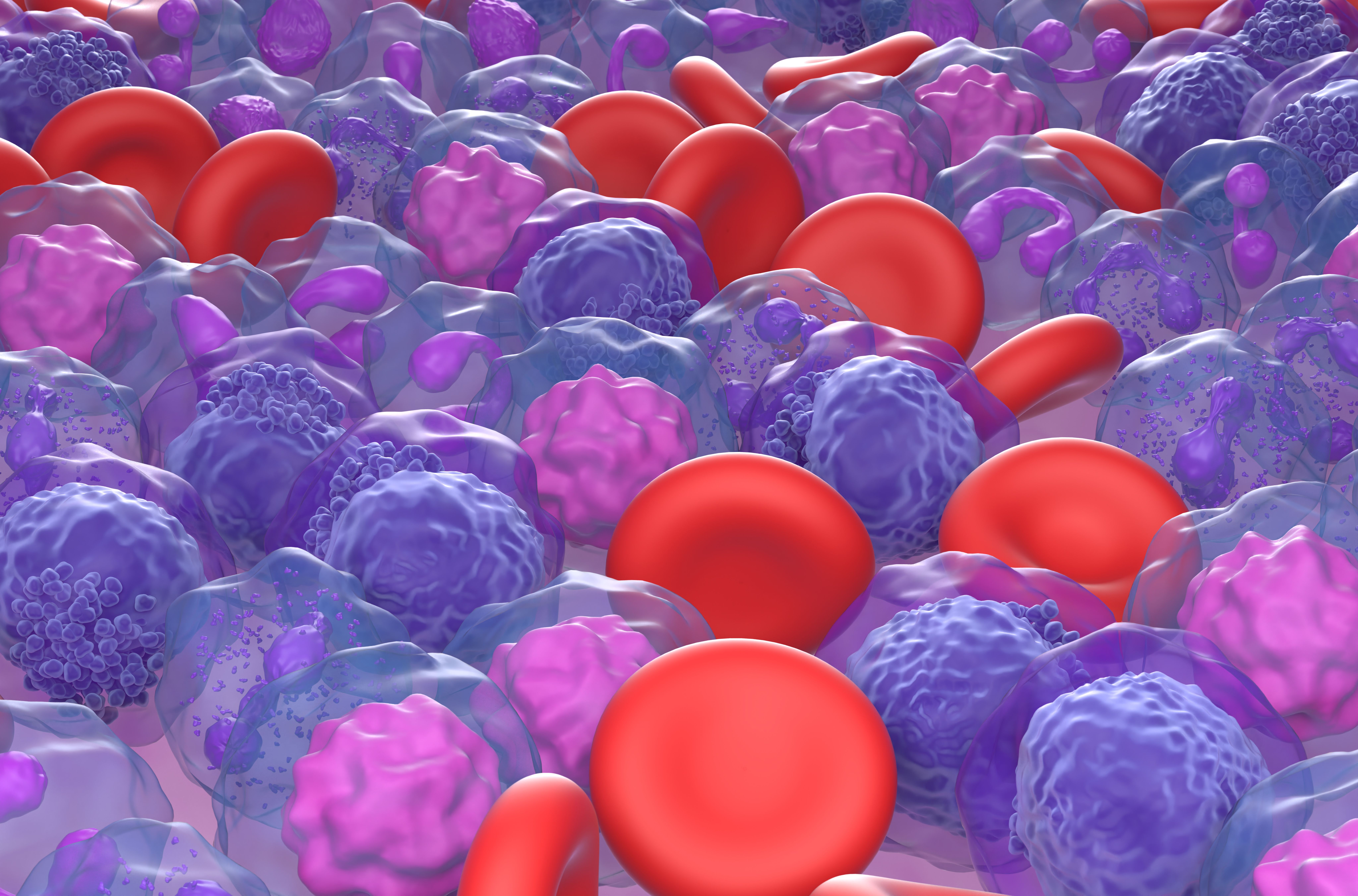The first patient with relapsed or refractory (R/R) and FLT3-mutated acute myeloid leukemia (AML) has been enrolled in the phase 1 FRIDA study (NCT05546580) of iadademstat (formerly ORY-1001) in combination with gilteritinib (Xospata).1
“We are pleased to announce the first patient entering into the FRIDA trial. It is our hope that the combination of iadademstat and gilteritinib will safely provide deep and durable responses for patients whose leukemias are driven by FLT3 mutations,” Douglas V. Faller, MD, global chief medical officer of ORYZON, in a press release.
About the Phase 1 FRIDA Study
Trial Name: A Phase 3 Open-Label, Multicenter, Randomized Study of ASP2215 Versus Salvage Chemotherapy in Patients With Relapsed or Refractory Acute Myeloid Leukemia (AML) With FLT3 Mutation
ClinicalTrials.gov Identifier: NCT02421939
Sponsor: Astellas Pharma Global Development, Inc.
Completion Date: July 31, 2023
Iadademstat is a LSD1 inhibitor that showed early signs of activity as a monotherapy in patients with R/R AML in a phase 1 study (EudraCT 2018-000482-36). Iadademstat showed reductions in blood and bone marrow blast percentages and induction of differentiation in blast cells. A complete remission was also achieved with iadademstat.2
Gilteritinib, is an FDA-approved FLT3 tyrosine kinase inhibitor that is effective for the treatment of R/R AML. In the phase 3 ADMIRAL study (NCT02421939), the agent showed a significant improvement in overall survival compared with chemotherapy.3
Iadademstat Plus Gilteritinib
FRIDA is an escalation/expansion, open label, multicenter study. The trial aims to enroll 50 patients with R/R AML who will be treated with the standard dose of iadademstat along with the 120 mg dose of gilteritinib.
The primary safety end points to be measured in the FRIDA study are the number of patients with adverse events (AEs), the number of patients with laboratory abnormalities, the number of patients with vital sign abnormalities and/or AEs, and the number of patients with routine 12-lead electrocardiogram abnormalities and/or AE. The study will also evaluate the recommended phase 2 dose, and concentration of iadademstat in the blood as primary end points. The primary efficacy end point to be explored in the study is objective response rate (ORR).
As secondary end points, the study will evaluate overall survival, event-free survival, ORR, time to response, duration of response, transfusion independence, and transplantation rate.
To be eligible for inclusion in the study, patients must have a diagnosis of primary AML or AML with myelodysplasia-related changes, be in their first or second relapse or have refractory disease, and test positive for a FLT3 mutation. Patients are also required to have an ECOG performance status 0-2, a life expectancy of at least 3 months, and normal hepatic and renal function. Additionally, both male and female patients must be willing to use contraception during the study.
The study will exclude individuals who have acute promyelocytic leukemia, known BCR-ABL-positive leukemia, AML secondary to prior chemotherapy for other neoplasms, or AML that has relapsed after or is refractory to more than 2 lines of therapy. Patients previously treated with a FLT3 inhibitor or who have had more than 3 prior therapies for AML are ineligible. Both treatment with investigational agents within 3 weeks of the first dose of study treatment or major surgery within 4 weeks are grounds for exclusion from the study. Patients with certain comorbidities will also be excluded.
REFERENCES:
1. ORYZON announces first patient in in FRIDA, a Phase ib trial with iadademstat in relapsed/refractory FLT3-mutant acute myeloid leukemia patients. News release. ORYZON Genomics, S.A. March 15, 2023. Accessed March 27, 2023. https://bit.ly/3JVZ5ge
2. Salamero O, Montesino SP, Willekens C, et al. First-in-human phase 1 study of iadademstat (ory-1001): a first-in-class lysine-specific histone demethylase 1a inhibitor, in relapsed or refractory acute myeloid leukemia. J Clin Oncol. 2020;38(36):4260-4273. doi:10.1200/JCO.19.03250
3. Perl AE, Martinelli G, cortes JC, et al. Gilteritinib or chemotherapy for relapsed or refractory FLT3-mutated AML. N Engl J Med. 2019; 381:1728-1740. doi:10.1056/NEJMoa1902688A
4. Study of ASP2215 versus salvage chemotherapy in patients with relapsed or refractory acute myeloid leukemia (AML) with FMS-like tyrosine kinase (flt3) mutation. ClinicalTrials.gov. Updated March 15, 2023. Accessed March 27, 2023. https://clinicaltrials.gov/ct2/show/NCT02421939
